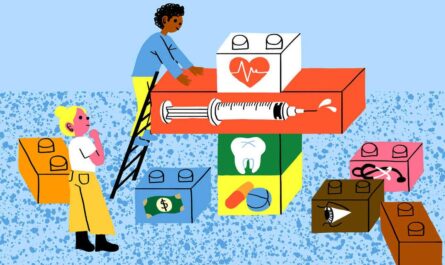A vital component of controlling healthcare expenses and guaranteeing access to essential medical treatments is having health insurance. Knowing the nuances of health insurance can help you, as an individual, family, or organization, make well-informed decisions regarding your medical alternatives. The numerous kinds of health insurance coverage, their advantages, how to select the best plan, and advice on making the most of your coverage will all be covered in this extensive book.

Understanding Health Insurance Coverage
The amount of your medical expenses that a health insurance plan will cover is referred to as your health insurance coverage. This covers regular examinations, urgent medical attention, prescription medications, hospital stays, and more. Access to essential healthcare services and protection from excessive medical expenses are the main goals of having health insurance.
Maximizing Your Health Insurance Coverage
To maximize your coverage after selecting a health insurance plan, it’s critical to use it wisely.
Utilize Preventive Services
Benefit from the preventive care that your plan offers. Maintaining your health and preventing major problems can be aided by routine check-ups, screenings, and vaccines.
Stay In-Network
Lower out-of-pocket expenses are usually the outcome of using in-network providers. Get to know the network and look for medical care from its members.
Use Health Savings Accounts for health insurance coverage
Consider creating an HSA if you currently have an HDHP. A health savings account (HSA) offers tax deductions for contributions and tax-free withdrawals for approved medical costs. This helps to mitigate the impact of rising healthcare prices.
Understand Cost-Sharing Requirements
Familiarize yourself with the cost-sharing requirements of your health insurance plan, including co-payments, co-insurance rates, and annual deductibles. Plan ahead for out-of-pocket expenses associated with medical services, prescription medications, and specialized treatments to avoid unexpected financial burdens.
Keep Medical Records Organized for health insurance coverage
Prescription drug lists, lab test results, doctor’s visit summaries, and invoices for medical services given should all be kept up-to-date in your medical history. Maintaining an accurate billing system for covered medical expenses and facilitating contact with insurance companies and healthcare providers are just a few benefits of keeping your medical data organized.
Contribute to Health Savings Accounts (HSAs)
Consider contributing on a regular basis to your compatible Health Savings Account (HSA) if you are enrolled in a high-deductible health plan (HDHP) in order to tax-advantageously save for future medical costs. With HSAs, you can save money for unexpected medical expenses, cover the cost of qualified healthcare services, and make investments in your long-term health and wellbeing.

Common Health Insurance Terms
Gaining an understanding of common phrases used in health insurance will make it easier for you to manage your policy.
Premium
The monthly premium that you pay for your health insurance plan.
Deductible
The amount that you have to pay for covered services out of pocket before your insurance starts to reimburse you.
Co-pay
A set price you pay for a service that is covered, like a prescription drug or visit to the doctor.
Co-insurance
The portion of the price that you, after paying your deductible, pay for services that are covered.
Out-of-Pocket Maximum
The most you will ever pay in a plan year for services that are covered. Once you’ve reached this cap, your insurance will pay 100% of any further expenses.
Network
The network of physicians, medical facilities, and other service providers that your health insurance plan has agreements with to offer services at discounted costs.
Understand Coverage Details
Go over your benefits and health insurance coverage plan carefully to find out which services are covered, which are not, and what restrictions apply. Be mindful of any exclusions, pre-authorization requirements, and coverage limitations that can affect your ability to obtain particular medical services.
Conclusion
Through facilitating access to necessary healthcare services, controlling medical expenses, and encouraging preventative care measures, health insurance coverage is crucial for safeguarding both your physical and financial well-being. You can choose the best health insurance coverage plan for your family, yourself, or your employees by being aware of the different kinds of plans that are available, assessing your healthcare needs, comparing plan costs, and optimizing your coverage benefits. To attain optimal health results and improve your quality of life, make your health a priority, invest in comprehensive health insurance coverage, and manage your healthcare requirements proactively.



